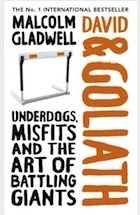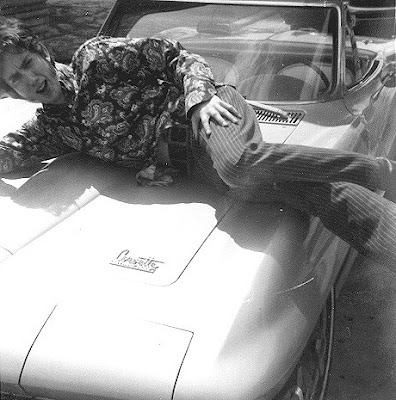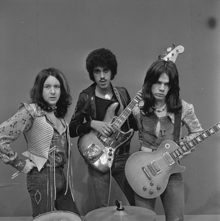Malcolm Gladwell
is in his natural habitat – a cafe in New York's West Village, down the
street from his apartment – engaged in a very Gladwellian task:
defending Lance Armstrong.
The bestselling author of The Tipping Point
and Outliers, who despite all appearances just turned 50, has a tendency
to hoist both arms aloft like a preacher when a topic inflames him.
And
the topic of doping in sports does. Why, he wants to know, is it OK to
be born with an abnormality that gives you surplus red blood cells, like
the Finnish Olympic skiing star Eero Mäntyranta, but not OK to reinfuse
your own blood prior to competing, as Armstrong apparently did?
Why are baseball players allowed performance-enhancing eye surgery, but
not performance-enhancing drugs?
"Imagine," Gladwell says, "if all the
schools in England had a rule that you can't do homework, because
homework is a way in which less able kids can close the gap that Nature
said ought to exist. Basically, Armstrong did his homework and lied
about it! Underneath the covers, with his flashlight on, he did his
calculus! And I'm supposed to get upset about that?"
David and Goliath: Underdogs, Misfits and the Art of Battling Giants
by Malcolm Gladwell

This argument enraged various sports pundits when Gladwell made it in The New Yorker, where he's been a fixture since 1996. But it will presumably only enrage them more to learn that he doesn't fully believe it himself.
"When you write about sports, you're allowed to engage in mischief," he says. "Nothing is at stake. It's a bicycle race!"
As a serious amateur runner himself (just the other day, he finished the Fifth Avenue Mile race, in Manhattan, in five minutes and three seconds) he's "totally anti-doping … But what I'm trying to say is, look, we have to come up with better reasons. Our reasons suck! And when the majority has taken a position that's ill thought-through, it's appropriate to make trouble." His expression settles into a characteristic half-smile that makes clear he'd relish it if you disagreed.
Gladwell has always
excelled in this role as intellectual provocateur. At their best, which
is often, his articles and books force you to reappraise assumptions so
deeply held that you didn't realise you held them, and millions have
found the experience intoxicating.
What if the most successful
entrepreneurs aren't the risk-takers, but the risk-averse?
Might the
world's intelligence agencies be better off firing all their spies?
Is
there a good reason why there are multiple kinds of mustard, but only
one major brand of ketchup?
The point isn't necessarily to accept his
conclusions, but to be jolted – even if via the improbable medium of
ketchup – into seeing the whole world afresh.
This galls some critics,
who'd prefer it if Gladwell made smaller, more cautious, less dazzling
claims. ("The problem with the Malcolm Gladwell Piece," a New York Observer journalist once wrote,
"is that it always seems to contain phrases like 'the problem with the
Malcolm Gladwell Piece.'")
But it's also what stimulates audiences in
such vast numbers: Outliers reportedly commanded a $4m advance, and
dominated bestseller lists on both sides of the Atlantic for months;
while his live lecture events, which reliably sell out, have made him
the only person about whom the labels "rock star" and "journalist" are
both routinely used.
He's also responsible more than anyone else for the
birth of the modern pop-ideas genre, in publishing and beyond. "Without
Gladwell," Ian Leslie wrote recently at Medium.com, "no Daniel Pink, no Steven Johnson … no Brainpicker, no TED. I exaggerate, but only slightly."
 Gladwell in 2005. Photograph: Rex Features
Gladwell in 2005. Photograph: Rex Features
Gladwell will perform four more such events, in London, Liverpool and
Dublin, later this autumn. The occasion is the publication of his new
book,
David and Goliath: Underdogs, Misfits and the Art of Battling Giants,
which is published in the UK on Thursday.
There's a case to be made
that it's his best yet: on the counter-intuitiveness front, it's classic
Gladwell, but it's also more socially and morally engaged than his
previous work.
That title might smack of how-to-get-ahead-in-business,
but he's no longer focused on the secrets of marketing or corporate
success.
David and Goliath explores when, and why, apparent
disadvantages – poverty, personal setbacks, military weakness – turn out
to be advantages, and when advantages, like wealth or status, aren't
what they seem.
"The fact of being an underdog changes people in ways
that we often fail to appreciate," Gladwell writes. "It opens doors and
creates opportunities and enlightens and permits things that might
otherwise have seemed unthinkable."
The outcome of the original
David-and-Goliath clash wasn't a miracle, he argues: it's just what
happens when the weak refuse to play by rules laid down by the strong.
(Sample sentence: "Eitan Hirsch, a ballistics expert with the Israeli
Defence Force, recently did a series of calculations showing that a
typical-sized stone hurled by an expert slinger at a distance of 35m
would have hit Goliath's head with a velocity of 34m per second – more
than enough to penetrate his skull and render him dead or unconscious.")
"With
each book that passes, I think my personal ideology becomes more
explicit … and this one is a very Canadian sort of book," says Gladwell,
who was born in Fareham, in Hampshire, but grew up in Ontario.
"It's
Canadian in its suspicion of bigness and wealth and power. Someone told
me – did you know that there's never been a luxury brand to come from
Canada? That's never happened. That's such a great fact to have about
your home country."
Difficulties and afflictions
frequently foster creativity and resilience, the book shows.
Studies on "cognitive
disfluency" have shown that people do better at problem-solving tasks
when they're printed in a hard-to-read font:
the extra challenge
triggers more effortful engagement.
We meet dyslexics whose reading
problems forced them to find more efficient ways to master law and
finance (one is now a celebrated trial lawyer, another the president of
Goldman Sachs);
we learn why losing a parent in childhood forges a
resilience that frequently spurs achievement in later life, and
why you
shouldn't necessarily attend the best university that will have you.
(The answer is "relative deprivation": the further you are from being
the best at your institution, the more demotivating it is; middling
talents perform better at middling establishments.)
Conversely, having
power can backfire, not least because it tricks the powerful into
thinking they don't need the consent of those over whom they wield it.
In a compelling account of the Troubles, Gladwell argues that the
British were plagued by a simple error: the belief that their superior
resources meant "it did not matter what the people of Northern Ireland
thought of them". More isn't always more.
There's a reactionary
way to interpret all this: if the human spirit finds ways to triumph
over adversity in the end, does that mean we needn't worry about
poverty, prejudice, childhood traumas, and the rest? "In the 19th
century, people like [the industrialist] Andrew Carnegie did talk about
poverty being useful as a justification for doing nothing about it,"
Gladwell says.
"But if this book's interpreted that way, that would be a
disaster. I'm just trying to say that it should reassure us that the
inevitable traumas of being human do end up producing some good.
Otherwise, the human condition is overwhelmingly depressing.
" We used to
be genetic determinists, he says. "We used to say poor people had lousy
genes. Then we decided that wasn't OK, but we transferred the prejudice
to upbringing. We said, 'You were neglected as a child, so you'll never
make it.' That's just as pernicious. This book is anti-deterministic in
that sense."
It is hard to resist trying to understand Gladwell's own life
and background in terms of Gladwellian theories. Indeed, in 2008's
Outliers he does so himself, explaining, in line with the book's thesis,
how the right combination of effort and contextual factors – such as
her light skin – enabled his Jamaican mother, Joyce, to end up at
University College, London, where she met and married an Englishman,
Graham Gladwell. (She became a therapist, he a maths professor.)
When
Malcolm was six, they moved to Canada, to a heavily Mennonite community;
Gladwell imbibed that denomination's focus on social justice, while
excelling as a runner at school.
After a history degree in Canada, and a
couple of years at conservative magazines, including the American
Spectator, he joined the Washington Post in 1987 – where he spent a
decade accumulating the 10,000 hours of practice which, according to
Outliers, is they key to mastery in many fields.
He joined the New
Yorker in 1996, and published the original "Tipping Point" article that
same year, analysing the plummetting Brooklyn murder rate through the
lens of epidemiology. As has been frequently observed, the book,
released four years later, was his professional tipping point, too.
Blink, his 2005 book on the strengths and weaknesses of unconscious
decision-making, consolidated his status.
He has continued to
produce tirelessly since then, with little time, as far as one can tell,
for much in the way of a personal life. ("He's dated a lot of women. He
loves other people's kids. But he has work to do," his oldest friend,
Bruce Headlam, told the Observer a few years ago.
Gladwell charmingly
but firmly rebuffs all questions in this vein.) He lives in a book-lined
apartment on one of downtown Manhattan's loveliest streets, but has
often described his preference for a "rotating" approach to writing,
involving stints at several local cafes, in an effort to recreate the
ambience of a newsroom.
We are now sufficiently far into the
Gladwell era that the Gladwell backlash is well under way.
He is
routinely accused of oversimplifying his material, or attacking straw
men: does anyone really believe that success is solely a matter of
individual talent, the position that Outliers sets out to unseat? Or
that the strong always vanquish the weak? "You're of necessity
simplifying," says Gladwell.
"If you're in the business of translating
ideas in the academic realm to a general audience, you have to simplify …
If my books appear to a reader to be oversimplified, then you shouldn't
read them: you're not the audience!" (Another common complaint, that
his well-paid speaking gigs represent a conflict of interest, is
answered in a 6,500-word essay on Gladwell's website.)
A subtler
criticism holds that there is something more fundamentally wrong with
the Gladwellian project, and indeed with the many Gladwellesque tomes
it's inspired.
To some critics, usually those schooled in the methods of
the natural sciences, it's flatly unacceptable to proceed by concocting
hypotheses then amassing anecdotes to illustrate them.
"In his pages,
the underdogs win … of course they do," the author
Tina Rosenberg wrote,
in an early review of David and Goliath. "That's why Gladwell includes
their stories. Yet you'll look in vain for reasons to believe that these
exceptions prove any real-world rules about underdogs."
The problem
with this objection is not that it's wrong, exactly, but that it applies
equally to almost all journalism, and vast swaths of respected work in
the humanities and social sciences, too. You make your case, you
illustrate it with statistics and storytelling, and you refrain from
claiming that it's the absolute, objective truth.
Gladwell calls his
articles and books "conversation starters", and that's not false
modesty; ultimately, perhaps that's all that even the best nonfiction
writing can ever honestly aspire to be.
Gladwell once wrote an
article defending a playwright who'd lifted material from one of
Gladwell's own articles, so perhaps it's not surprising that he also
defends his former
New Yorker colleague Jonah Lehrer, who admitted fabricating quotes
in his book Imagine.
"In the classic sense of the word, it was a
hysteria," Gladwell says of the anti-Lehrer uproar.
"There was a kind of
frenzy about it that was disproportionate to the crime.
Jonah screwed
up, and he's the first to say he screwed up, but I'm puzzled by how much
vitriol was directed at him. If I was going to be psychoanalytic about
it, I'd say it has to do with anxiety within the world of journalism,
about its loss of authority: we think we're losing our place in the
world, and so we're hypersensitive about those who undermine that place
further."
Then again, Lehrer recently obtained
a new book deal: perhaps his new-found position as an underdog will benefit him yet.
The
most powerful section of David and Goliath concerns the climactic
battle of the civil rights movement in Alabama, in 1963.
In public,
Martin Luther King and his aides maintained a dignified facade, but
behind the scenes, King's organiser in Birmingham, Wyatt Walker, used
cunning to turn the movement's weaknesses into strengths.
By delaying
street protests until late afternoon, when Birmingham's black residents
were walking home from work, he led authorities to believe that
onlookers were actually protestors.
("They cannot distinguish even
between Negro demonstrators and negro spectators," Walker later
recalled. "All they know is negroes.")
By luring police into arresting
hundreds of children, they overwhelmed Birmingham's jails, turning
police commissioner Bull Connor's eagerness to arrest black people
against him.
Perhaps it wasn't "right", by some definition of that word,
to send children for arrest, or to engineer confrontations between
passers-by and police dogs –
-- but Gladwell argues:
"We need to remember
that our definitions of what is right are, as often as not, simply the
way that people in positions of privilege close the door on those at the
bottom of the pile."
Underdogs have to use whatever they've got. And in
the end, "much of what is valuable in our world arises out of these
kinds of lopsided conflicts … the act of facing overwhelming odds
produces greatness and beauty."
Details: malcolmgladwell-live.com












